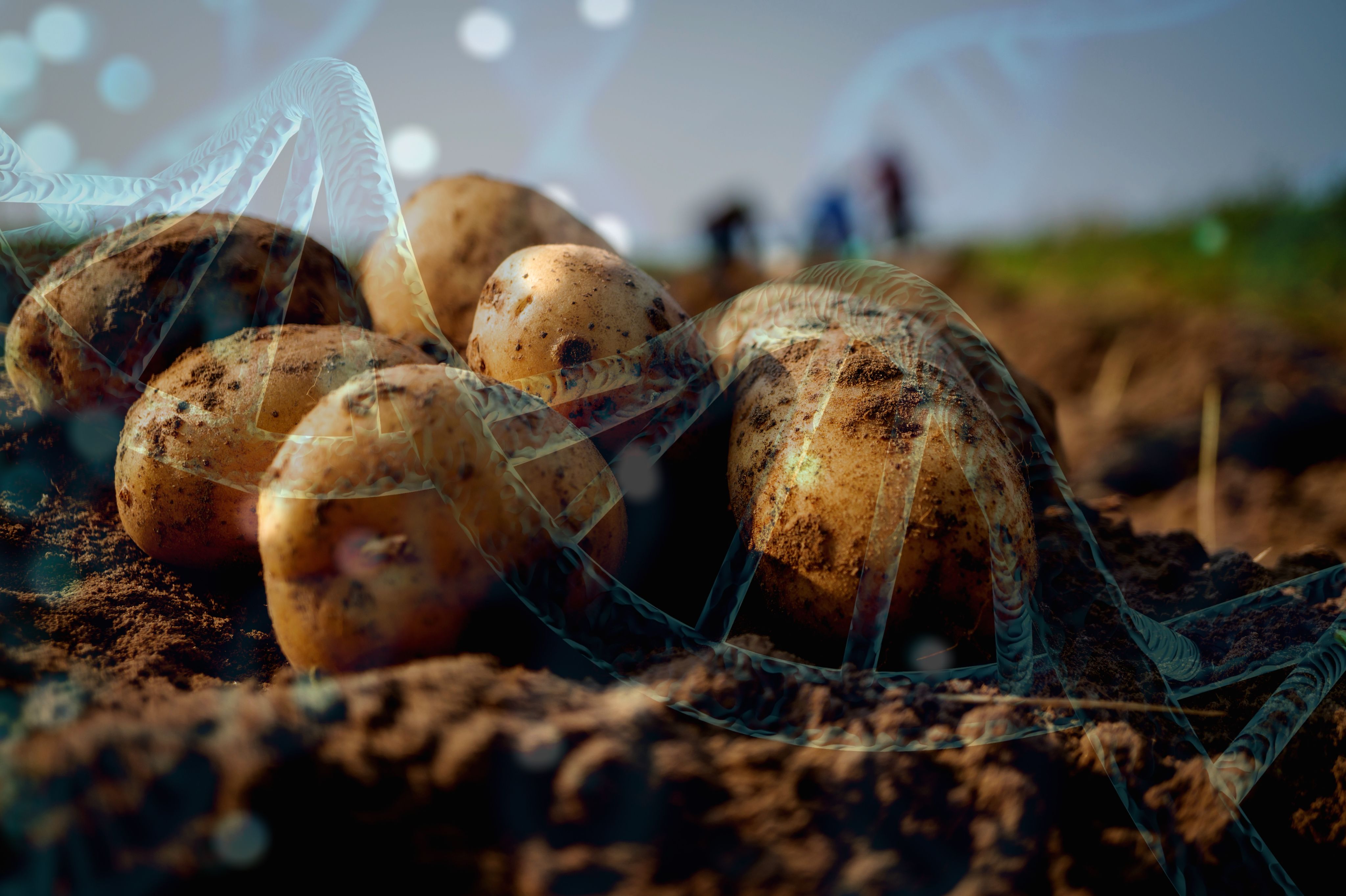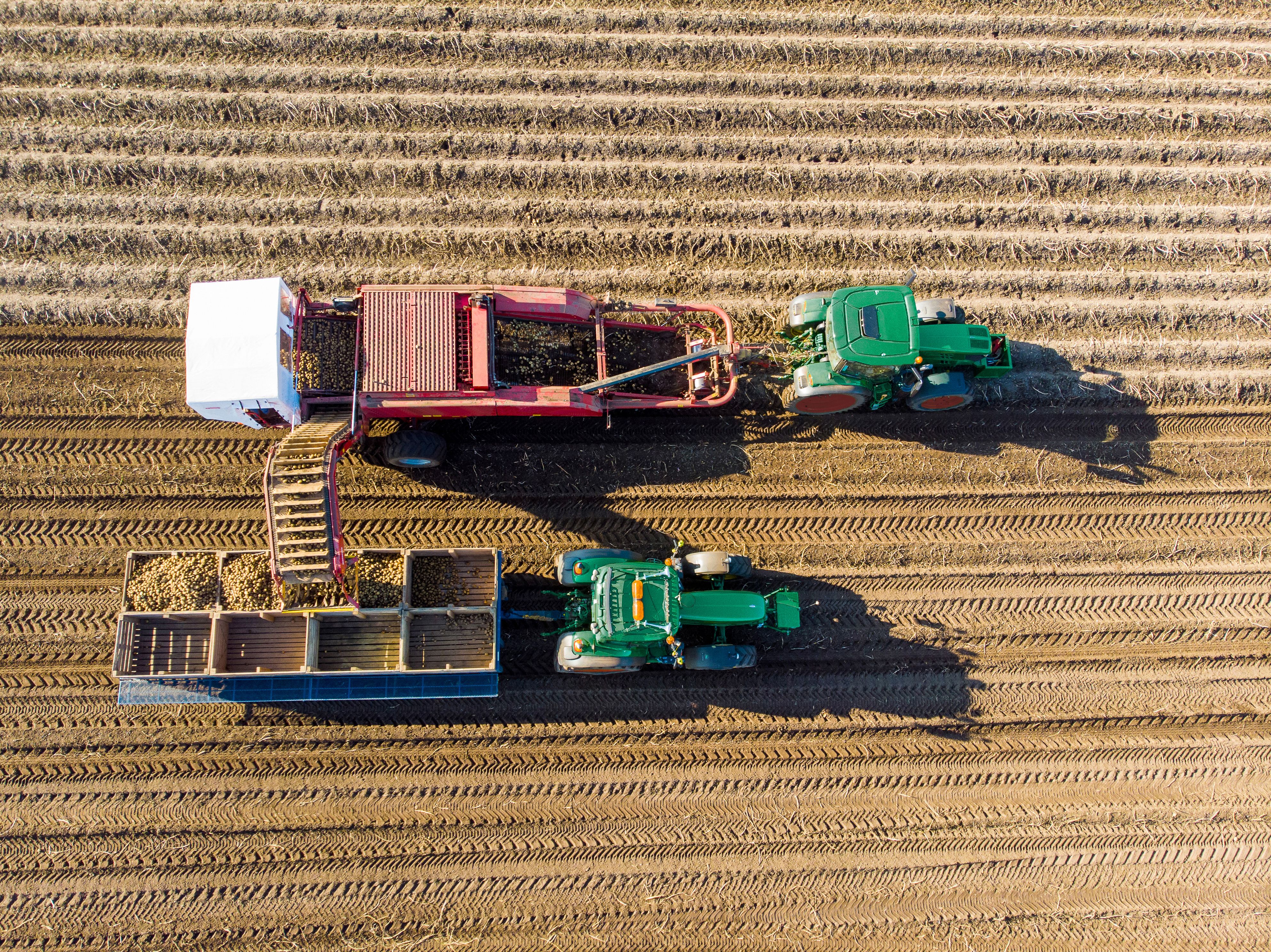The rise of the super spud

The UK potato sector produces around five million tonnes of potatoes each year, but faces significant hurdles, including the fact that a significant number of potatoes don’t meet commercial specifications, costing millions of pounds annually. Additionally, changing consumer preferences have caused fresh potato sales gradually to decline, as people opt for quicker-cooking alternatives such as rice and pasta.
To boost their appeal among UK consumers, it would be beneficial if potatoes could be developed that were resilient to disease and pests, as well as to bruising, which customers can find off-putting. It would also be helpful if they needed less time, energy and cost to cook. By targeting specific genes that are responsible for traits such as bruising susceptibility and cooking times, this project aims to create varieties that meet the needs of both growers and consumers.
These days you can look at the genetics of the potato and work out how you can edit them…to give you the characteristics you want
Vidyanath Gururajan
CEO of B-Hive Innovations

“The answer in both of these areas is to breed new varieties of potatoes,” says Vidyanath Gururajan, CEO of B-Hive Innovations. “To do that, traditionally you would have taken existing varieties and bred them together to produce new ones. But that takes time. These days you can look at the genetics of the potato and work out how you can edit them, hopefully to give you the characteristics you want.”
With support from UKRI’s Technology Missions Fund, Lincoln-based B-Hive Innovations are leading an engineering biology project called TuberGene. This involves gene-editing potatoes to produce varieties that don’t bruise, and that cook quicker. The project also involves producing a full genome sequence of the popular Maris Piper potatoes: this will make it possible to identify genes that could be edited in future, to make the potatoes more resistant to drought or flooding, to make them more disease-resistant, or to make them more nutritious. With new legislation allowing the commercial development of gene-edited crops, this project presents an exciting opportunity to transform the industry.
TuberGene involves gene-editing potatoes to produce varieties that don’t bruise, and that cook quicker. It will also identify genes that could be edited in future, to make the potatoes more resistant to drought, flooding and disease, or to make them more nutritious
In partnership with B-Hive Innovations, the James Hutton Institute is carrying out the gene editing involved in the project. This is not an easy task when it comes to potatoes: where many organisms (including human beings) are ‘diploid’ – having two copies of DNA in every chromosome – potatoes, being ‘tetraploid,’ have four. That makes gene sequencing and editing harder: all four copies may need to be edited in the same way.
For Vidyanath Gururajan, this project has implications which go beyond the immediate boost that it will give to potato growers. “The techniques we’re developing could be applied to other kinds of produce. There is an important environmental angle in this: not only are we reducing the amount of time, and therefore energy, that it takes to cook potatoes, but we are reducing the proportion of potatoes that end up as food waste, because they are diseased or bruised. Just as importantly, we are showing how food crops of many kinds can be made more resilient to the effects of climate change.”
UKRI Technology Missions Fund
The UKRI Technology Missions Fund is designed to exploit the UK’s global leadership in transformative technologies to help solve specific problems, whilst also helping cement that leading position. Overall, UKRI is investing £320 million in Technology Missions to enable new and existing capabilities and capacity in artificial intelligence, engineering biology, future telecommunications and quantum technologies in the years 2023 to 2025 and beyond.
Find out more
Find out more about the UKRI Technology Missions Fund
Find out more about Our strategy 2022 to 2027
Find out more about how we are supporting Tomorrow’s Technologies



